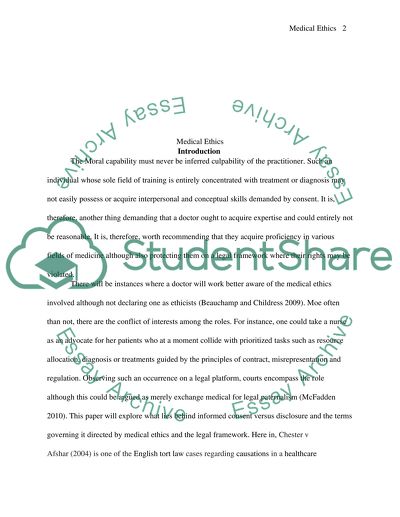Cite this document
(“Medical Ethics Essay Example | Topics and Well Written Essays - 2500 words”, n.d.)
Retrieved from https://studentshare.org/health-sciences-medicine/1688973-medical-ethics
Retrieved from https://studentshare.org/health-sciences-medicine/1688973-medical-ethics
(Medical Ethics Essay Example | Topics and Well Written Essays - 2500 Words)
https://studentshare.org/health-sciences-medicine/1688973-medical-ethics.
https://studentshare.org/health-sciences-medicine/1688973-medical-ethics.
“Medical Ethics Essay Example | Topics and Well Written Essays - 2500 Words”, n.d. https://studentshare.org/health-sciences-medicine/1688973-medical-ethics.


